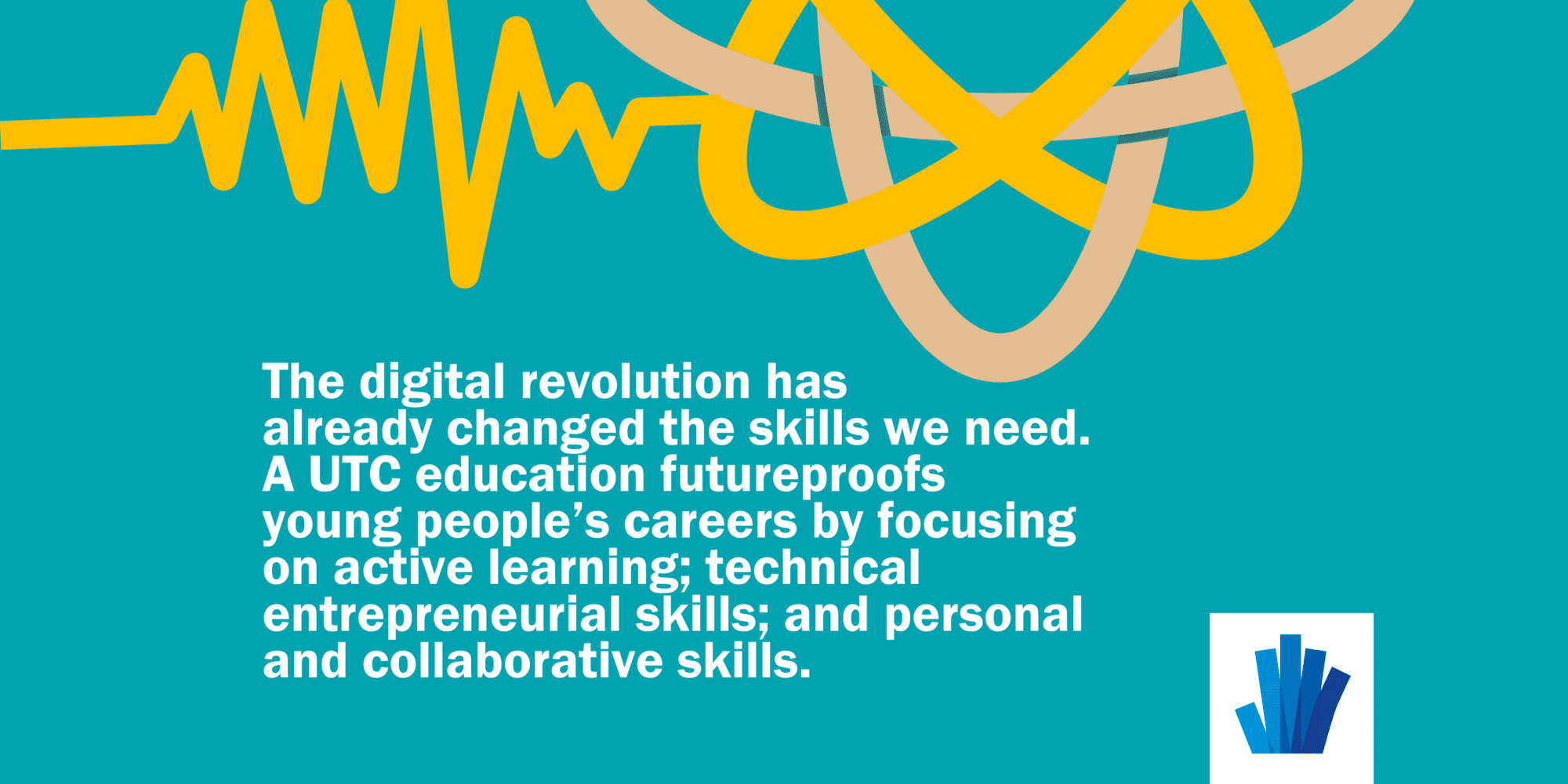The digital revolution has already changed the skills we need. A UTC education futureproofs young people’s careers by focusing on active learning; technical entrepreneurial skills; and personal and collaborative skills.
Careers of the future will involve agile thinking and problem-solving, but the skills prioritised by many schools are increasingly done by computers. That’s where UTCs are different.
The digital revolution has already changed the skills that young people need to be successful in the world of work, and this trend is set to continue at an extraordinary pace. Arguably the most comprehensive study on how this could impact the job’s market found that 30% of all employees could be replaced by automation by 2030, depending on the speed of adoption. The Covid-19 pandemic will undoubtably accelerate the trend towards automation, particularly where it keeps workers and consumers safer.
Of course, jobs and automation are not mutually exclusive. This is not all bad news! But it does mean that employers will place greater value on those characteristics and aptitudes, particularly ‘non-linear’ thinking skills, which are simply harder to replace with computers and robots.
Unfortunately for many young people, our school system today prioritises just the opposite: linear thinking skills. These are analytical, methodical, and process-driven ways of working. They have a start and an end. Linear thinkers use the wealth of information they have assimilated and apply this to problem solving. Indeed, our examination system, the very measure of student achievement, is perfectly designed for linear thinkers. Ironically, those very skills which might help to achieve the highest grades at GCSEs and A Levels are precisely those which are most easily replaced by computers. Is this really what we should desire in our schools?
An education which truly prepares young people for the future must also nurture and develop non-learning thinking skills such as creativity, entrepreneurial characteristics, active rather than passive learning, and leadership and collaboration. In other words, while knowledge is as necessary as ever, it is no longer enough. Abstract information and reasoning need to be linked to the ‘real world’ through practical applications.
This is precisely the approach of University Technical Colleges (“UTCs”). Through their association with employers and universities, project-based learning, and a focus on technical subjects, UTCs bridge the gap between the world of education and the world of work. By placing equal emphasis on both linear and non-linear skills, UTCs ‘futureproof’ young peoples’ careers.
Today, there are 48 UTCs across England educating just under 15,000 students, aged between 13 and 18. This unique and relevant approach to education has the support of over 400 employer and university partners, who see the true value of non-linear, as well as linear, skills as they look into the future of their organisations.
Technology is changing the way everyone works. The current coronavirus pandemic will only accelerate this. Our education system must keep pace with this change, or the job prospects for many young people will be dire. One beacon of hope in the current crisis is that we have seen that radical change across all facets of society is possible, despite significant challenges. Where there is a will, there is a way. We need to take this on board and be bold with our school system, and UTCs are leading the way by providing an education fit for the 21st Century.

